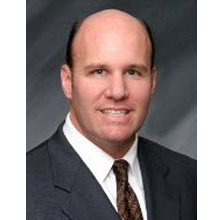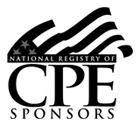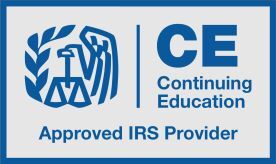

View Details/Register
View Details/Register
View Details/Register
View Details/Register
View Details/Register
View Details/Register
View Details/Register
View Details/Register
View Details/Register
View Details/Register



CPA - medium firm
CPA - large firm
Enrolled Agent
Real Estate Professional
This intermediate/advanced-level webinar provides a concise and thorough overview of IRC Section 1031 tax-deferred exchanges for accountants, CPAs, and tax advisors.
This webinar covers critical IRS time deadlines in delayed exchanges, “like-kind” requirements including creative property variations like easements, transferable development rights, oil/gas/minerals rights, vacation homes held for investment, fractional ownership (DST and TICs), partnership/LLC scenarios (and how to best structure in advance of a 1031 exchange), reverse and improvement exchanges, related-party transactions and how to avoid common pitfalls, and other 1031 related issues. This webinar will summarize current developments regarding applicable revenue rulings, PLRs, and recent IRS guidance on current topics related to 1031 exchanges.
Learn how to help taxpayers owning commercial property in an LLC or partnership plan in advance to help avoid issues at closing if only some of the LLC members or partners want to exchange, including the “drop and swap,” "swap and drop,” and partnership installment note (PIN) approaches.
Learning Objectives:
- Determine which types of real property qualify and do not qualify for a 1031 exchange
- Recall the IRS criteria for evaluating whether the property is being held for investment versus held for sale
- Recall the process and requirements for full or partial tax deferral (and why boot may be beneficial for some taxpayers)
- Identify reasons why taxpayers exchange and how a tax-deferred exchange can help taxpayers improve their position in the market
- Identify the latest exchange trends affecting investors in the current investment market
- Identify how higher capital gain taxes and the Section 1411 Net Investment Income Tax (NIIT) have increased taxation for taxpayers by as much as 58%
- Recall how parking arrangements (reverse and improvement exchanges) can help taxpayers in markets with little available inventory at favorable pricing
- Recall qualified intermediary (QI) due diligence
- Recall the interaction between QOZ and 1031 exchanges

Scott Saunders
Asset Preservation Inc
Vice President
[email protected]
719-481-9788
Scott R. Saunders is Senior Vice President with Asset Preservation, Inc. (API), a subsidiary of Stewart Information Services Corporation (NYSE: STC). Scott has an extensive background in Internal Revenue Code §1031 tax-deferred exchanges, having been involved in structuring thousands and thousands of §1031 exchanges during his twenty-eight years in the exchange industry. He holds a Business Economics degree from the University of California at Santa Barbara. Asset Preservation is a leading national IRC §1031 Qualified Intermediary and has completed over 160,000 §1031 tax-deferred exchanges throughout the nation. Mr. Saunders dedicates a significant portion of his time to presenting classes on introductory and advanced §1031 exchange strategies to accountants, attorneys, financial advisors, real estate brokers, and principals nationwide. He has spoken at the annual National Bar Association Conference, National Society of Accountants (NSA) Annual Conference, National Association of Realtors® Annual Conference, GMAC Real Estate’s Annual Convention, Annual Conference for the American Society of Cost Segregation Professionals, Building Owners and Management Association International (BOMA) Annual Conference, American Land Title Association (ALTA), Colorado Society of Certified Public Accountants Annual Convention, Colorado Association of Realtors Annual State Convention, Ohio Bar Association, the Certified Commercial Investment Member (CCIM) and Institute of Real Estate Management (IREM) Success Series, Tenant-in-Common Association (TICA), the University of Denver and Washington D.C. Bar Association and many other state and local financial, real estate, accounting, and legal associations. He has also been a regular presenter of 8-hour C.L.E. and C.P.E. approved classes on advanced §1031 exchange issues to accountants, attorneys, commercial developers, and CFO’s arranged by Lorman Education and the National Business Institute. Scott regularly provides webinars for continuing education credit on the subject of §1031 exchanges. In addition to being an accredited speaker in numerous states, Mr. Saunders was a contributing author to the book Real Estate Exchanges: Using the Tax Deferred Exchange in Real Estate Investment Management. He was featured in The Wall Street Journal article, High-Impact Tax Breaks, in July 2013. He has written over 180 articles on various aspects of §1031 tax-deferred exchanges, capital gain taxation, and investment real estate. His articles have been featured in many investment publications such as the New York Real Estate Journal, Mid Atlantic Real Estate Journal, Inman News, REBusiness Online, Heartland Real Estate Business, Western Real Estate Business, Realtors® Land Institute Terra Firma, and many other real estate and other financial publications. Mr. Saunders also is a Board Member of the Federation of Exchange Accommodators (www.1031.org), the national 1031 exchange industry trade association.
- To receive CPE credit, you must register for the webinar before it starts.
- CPE is available to all eligible participants within 24 hours of each webinar.
- To receive CPE for multiple attendees, at least one person must sign up for the webinar. The post-webinar email contains a link to instructions for the proctor letter. Alternatively, you may log in to your account following the webinar and click on the MY ACCOUNT button to find a link to instructions. For paid courses, payment needs to be made for each attendee before credit will be issued.

NASBA Approved
CPAacademy.org (Sponsor Id#: 111889) is registered with the National Association of State Boards of Accountancy (NASBA) as a sponsor of continuing professional education on the National Registry of CPE Sponsors. State boards of accountancy have final authority on the acceptance of individual courses for CPE credit. Complaints regarding registered sponsors may be submitted to the National Registry of CPE Sponsors through its website: www.nasbaregistry.org.
CPAacademy.org 1685 S. Colorado Blvd, Suite #205, Denver, CO 80222

EA Approved
CPAacademy.org (Sponsor Id#: HURS9) has entered into an agreement with the Internal Revenue Service, to meet the requirements of 31 Code of Federal Regulations, section 10.6(g), covering maintenance of attendance records, retention of program outlines, qualifications of instructors, and length of class hours. This agreement does not constitute an endorsement by the IRS as to the quality of the program or its contribution to the professional competence of the enrolled individual. Credit earned by attendees with a PTIN will be reported directly to the IRS as required of all providers. To ensure your CPE hours are reported, update your profile in My Account to include your PTIN number. Please note: IRS CE is only mandatory for EAs and ERPAs. For all other tax return preparers, CE is voluntary.
CPAacademy.org 1685 S. Colorado Blvd, Suite #205, Denver, CO 80222


